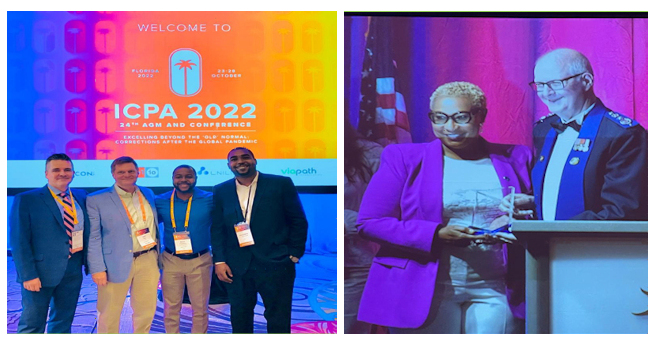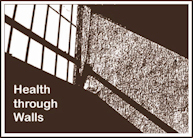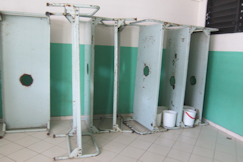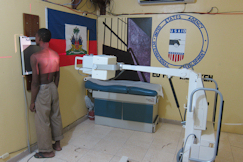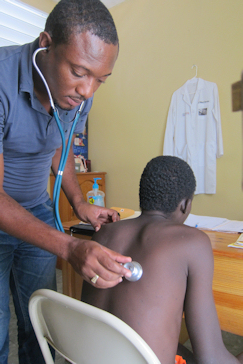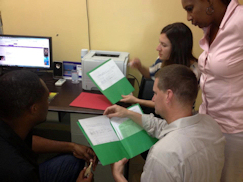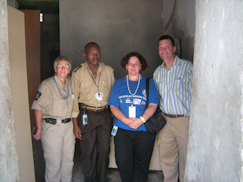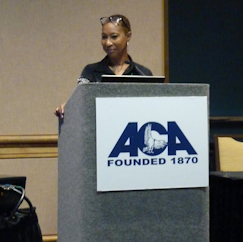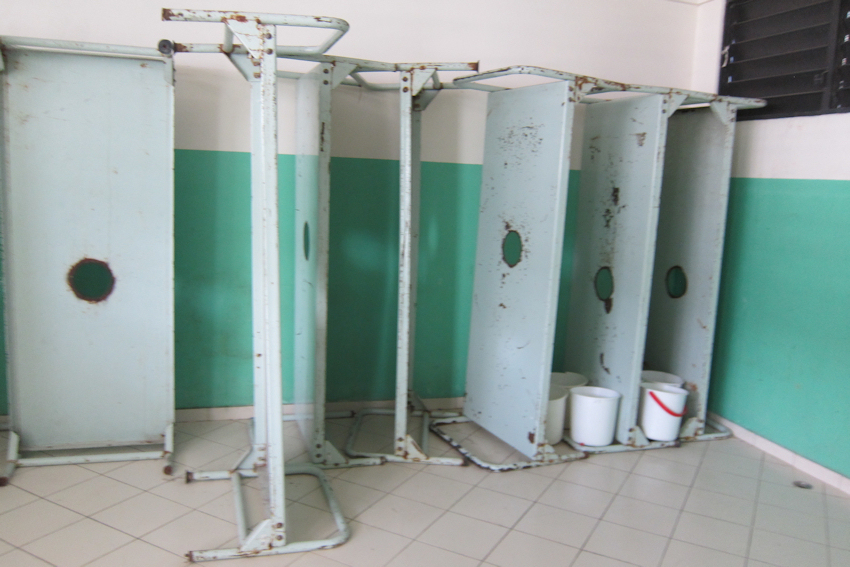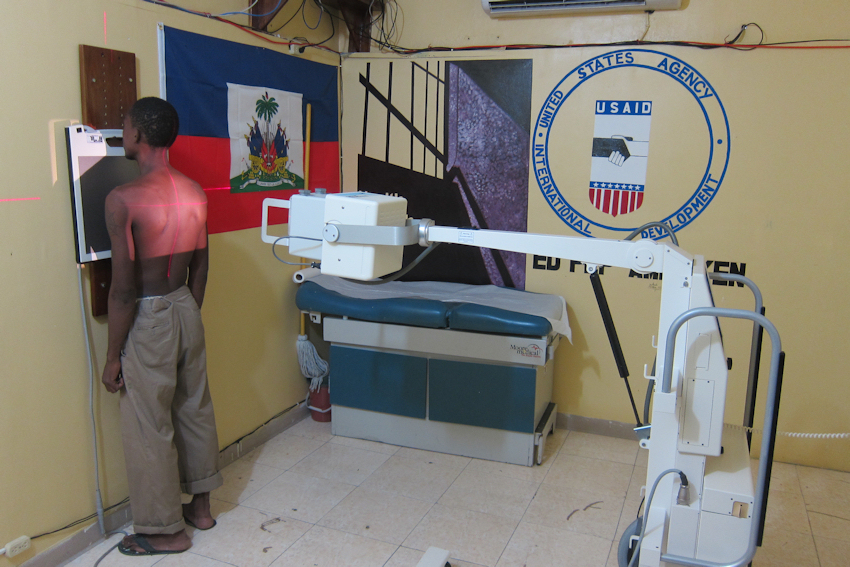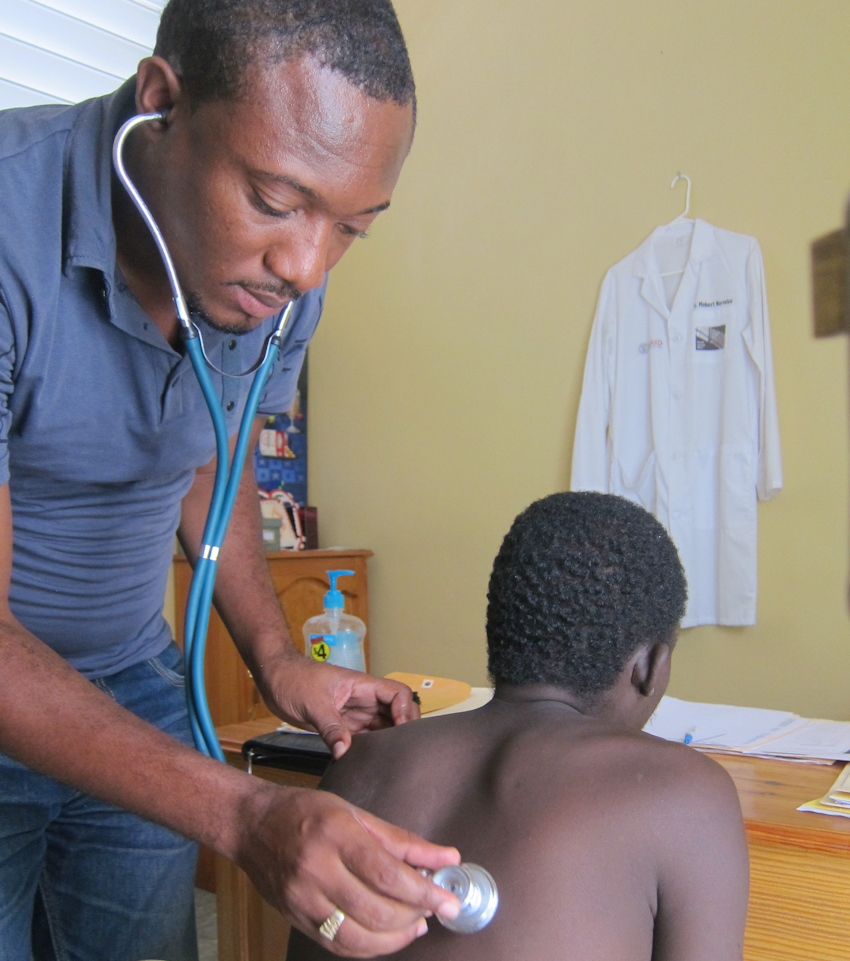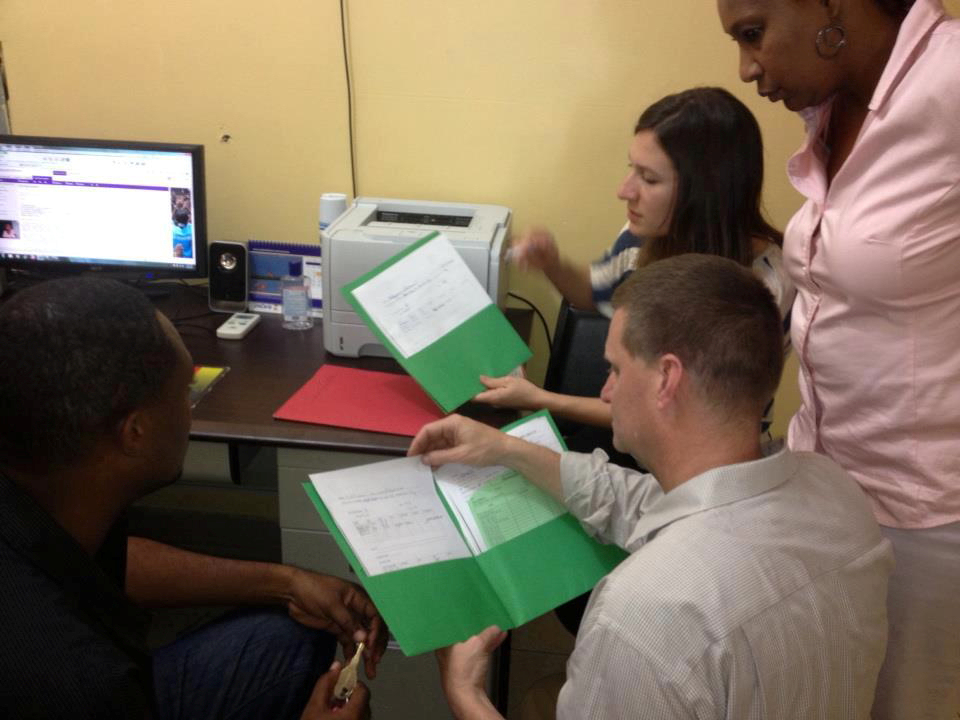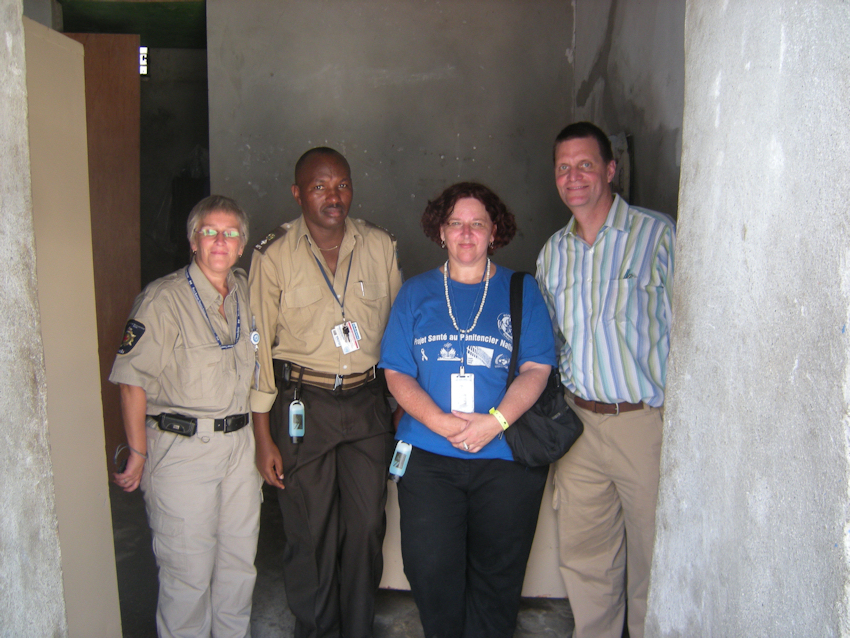Where We Work: HAITI

ALERT: COVID-19 is now in Haiti's national prisons and Health through Walls is engaged in the treatment and care of these patients. Early on HtW nurses and a doctor became infected. HtW is grateful to the speedy donation of hundreds of PPE from Yale University. Our staff must have adequate PPE in order to carry out their work. Sanitation within the prison is critical to prevention and spread of this disease and equipment and supplies are necessary. Masks for prisoners, PPE is needed for prisoners doing Peer Education as well as for those assisting is sanitation work. Oxygen and medications, and many other items and equipment are critical to fighting COVID-19 in Haiti's prisons. Isolation for COVID-19 patients is likewise important and HtW is advocating for a solution within Haiti's grossly overcrowded main national prison that houses approximately 4,000 in a very tight space. (According to the United Nations, Haiti's national prison is one of the worst overcrowded prisons in the world.) HtW staff and Peer Educators are working with prison authorities and prisoners throughout Haiti to prevent COVID-19's spread and to treat those who are infected.
Health through Walls' main focus is the prevention, identification, and treatment of contagious and infectious disease within Haiti's prison system.
Despite great need, gross overcrowding, prolonged pre-trial detention and widespread life-threatening malnourishment within its national prison system, as recently as 2008, Haiti's prisons did not have HIV testing or treatment available to its prisoners. Deaths suspected to be advanced HIV disease but not diagnosed or treated occurred regularly. Prison officials expressed frustration at being unable to meet health needs yet were unable to identify solutions.
HtW worked to build advocacy and identify partners. HtW met with Haitian governmental ministries, local health agencies and universities, international organizations and brought together a plan of support and action.
Working on the HtW plan to better prevent, diagnose and treat, HtW has successfully accomplished the following: creation of a proper dispensary and infirmary within Haiti's main prison; isolation space for prisoners with tuberculosis; staff training; health promoter/prisoner peer education training on HIV, AIDS, TB, cholera, etc.; sanitation crews; policy development; electronic health records; HtW's own laboratory inside Haiti's main prison; portable digital radiography to perform chest x-rays as part of routine tuberculosis screenings; comprehensive HIV and TB prevention care and treatment programs; use of GeneXpert machine in cooperation with the Haiti's National TB Program increasing capacity to detect drug-resistant TB; nutritional consultants; comprehensive health screenings for all new prisoners; cervical cancer screening for women prisoners since 2013; reduction of transmission of disease and mortality rate; eye and dental care with the help of NGOs and visiting doctors/dentists.
Telemedicine, through HtW's introduction of digital x-ray technology and internet, is able to connect doctors within Haiti or abroad for particular expertise to consult on difficult cases or in making diagnoses. The patient is presented onscreen for a medical interview and viewing of their condition. Prison medical staff can engage in discussion with the consulting doctor via the screen as well. Also, with support from TB REACH, HtW is piloting a project that uses video recordings to document prisoners taking their TB medications instead of relying on health staff --an intervention that could be promising for prisons worldwide with limited health staff resources.
HtW created a discharge planning system and later partnered with AIDS Healthcare Foundation (AHF) and their community health clinic where HtW provides released prisoners and their partners with continuity of care, as well as health care for the community.
HtW performs contact tracing for HIV and tuberculosis and holds community healthcare screening fairs in neighborhoods in different regions of Haiti, seeing close to a thousand men, women and children over a couple of days.
HtW hosts prison administrators and medical staff to attend key conferences in the United States or elsewhere and also tours them throughout prisons and their medical units abroad.
HtW also partners with legal and human rights advocates for reduced pre-trial detention, improvement in prison conditions that are detrimental to prisoners health, as well as to assist seriously ill prisoners whose release is critical to their health and who may have already been imprisoned for longer than a prison sentence would be if ever convicted and sentenced. (More than 80% of Haiti's prisoners have not been sentenced or had their cases heard in the courts, yet they languish in prison for years on sub-standard diets, exposed to contagious disease, and often suffering from circulation problems from standing for long periods of time in overcrowded cells. More than a hundred prisoners have died over the last few years from malnutrition.)
Background
In July 2008, Health through Walls implemented a plan of care and treatment for prisoners with HIV infection in Haiti's National Penitentiary. Prior to this time, no formal mechanism existed for prisoners to receive HIV specialty care. HtW partnered with Les Centres GHESKIO, the preeminent provider of HIV care and treatment in Port-au-Prince, in order to provide specialty training, laboratory support, access to antiretroviral medications, and treatment linkages for released prisoners.
The plan spearheaded by HtW and GHESKIO involved a formal Memorandum of Agreement under the leadership of Haiti's Prime Minister at the time, Madame Michele Duvivier Pierre-Louis, and established a framework for HIV-related prisoner health services, defining the roles of multiple organizations who were invited to participate including the United Nations Mission for the Stabilization of Haiti (MINUSTAH), and Haiti's Ministries of Health, Justice, and Social Affairs, as well as the International Committee of the Red Cross. This critical initiative established the groundwork for a sustainable mechanism of on-going care, treatment and prevention.
On July 15, 2009, HtW received a USAID grant entitled "Control and Prevention of the Spread of Contagious Disease at the National Penitentiary," that engaged HtW to coordinate and conduct large scale voluntary medical screenings and examinations for each of the more than 4,000 prisoners at the National Penitentiary at the time. HtW also created a medical record for each prisoner, established systems of intake screening, chronic care clinics, and discharge planning. Plans began for a transition to an electronic health record and development of telemedicine. This was the first award from USAID for a prison health program anywhere in the world.
Starting in 2010, HtW traveled to various prisons throughout Haiti to conduct medical exams, set up medical files for each prisoner, and identify and treat infectious disease, as well as to train local medical staff and prison staff.
In 2009, together with our volunteer medical delegations, and prison medical staff, we performed medical screening of 2,000 out of the 4,000 prisoners in the National Penitentiary until the January 12, 2010 earthquake. While working to rebuild the prison health unit following the earthquake, HtW also conducted medical screenings in 2010-2011 of all prisoners in Cap Haitian, in the Central Plateau region and in Les Cayes.
Earthquake Recovery and donations of equipment. HtW played an important role in gathering medical supplies, equipment, medicines and furnishings for Haiti's National Penitentiary. Haiti's prisons, justice and health systems, as well as the UN mission and NGOs in Haiti, suffered major setbacks from the earthquake. Buildings collapsed, prisoners escaped, government and UN personnel died, and medical and judicial files destroyed.
During the next several days and weeks, the response joined the other international organizations already in Haiti such as the United Nations and International Committee of the Red Cross to provide short-term relief and long-term strategic planning. Monies raised by HtW were immediately dispatched and directed to the urgent needs of the prisoners and staff in the broken prison system. HtW organized support for the prison authority with multiple agencies including the American Correctional Association, International Corrections and Prison Association, and Iota Phi Theta Fraternity.
Over the next several months, HtW collected materials and equipment, enough for three 40-feet commercial containers. These were packed, shipped, and delivered to Haiti's National Penitentiary. By mid-February, 2010, a portion of the prison reopened. Provisions and space were sparse, yet the prisoner population grew quickly from a few dozen to more than 1,000. HtW worked closely with prison authorities to restore medical services and programs at the prison. The medical unit reopened, new medical files created, care and treatment resumed. HtW also gave medical support to the prisons of Cap Haitian, Grand Riviere du Nord, and Les Cayes, some of which were also affected by the earthquake.
By the end of 2013 HtW had dedicated, trained medical teams in place to work full-time with the prison authority medical staff in six of the national prisons including in the women's prison and in the juvenile prison.
In 2014, a grant from the Elton John AIDS Foundation made it possible for HtW to conduct medical screenings in ten additional national prisons throughout Haiti.
Currently, HtW provides screenings and treatment in all of Haiti's national prisons.
Award
Global Correctional Health Award to HtW Haiti, 2022
The 2022 Excellence Award in Correctional in Healthcare was presented to Karine Duverger and the HtW Haiti by the President and Board of Directors of the International Corrections and Prisons Association during the annual conference held in October 2022 in Orlando, Florida. The Haiti team was recognized for "using technology and. Artificial Intelligence to improve health outcomes for the identification and management of tuberculosis. Witnessed by correctional leaders from more than 70 countries, Karine and the: team graciously accepted this highest honor. We are extremely proud!
Additionally, conference delegates heard from other HtW team members in workshops highlighting the work. Dr. Edwin Prophete of Haiti presented on the use of technology in prison: health. Grace Butler of the Dominican Republic. : presented with the Director General on the successful screening and treatment of hepatitis c in their largest prison. Dr. Greggory Baguidy presented on the HtW/ AIDS Healthcare Foundation transitional health clinic in Haiti for formerly: incarcerated persons. Ivan Colder presented with the United National Peace Operations on the development of the HtW Rapid Assessment Tool.
